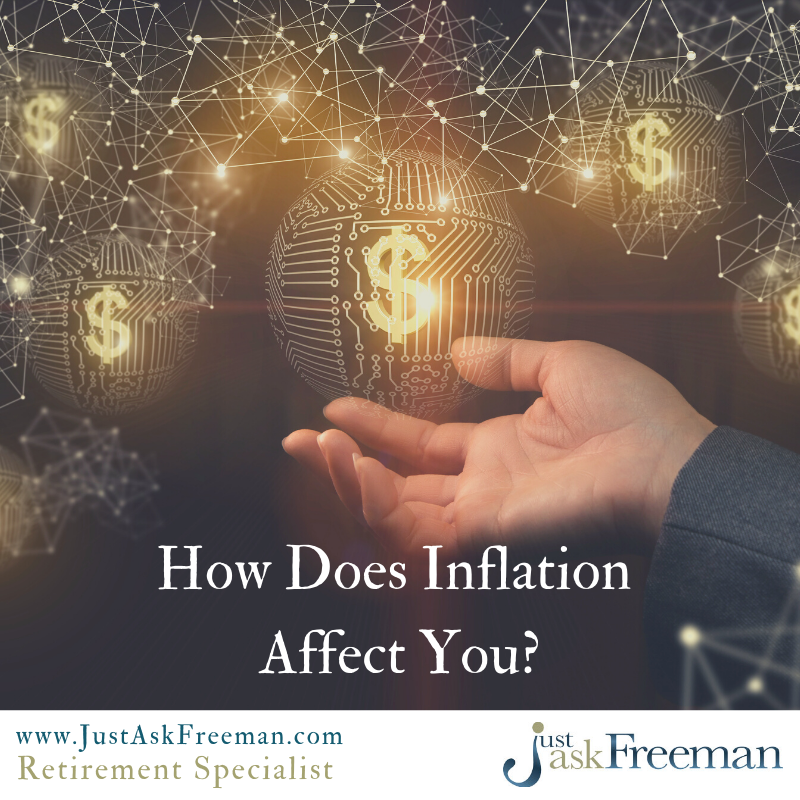HOW DOES INFLATION AFFECT ME?

Know how inflation can impact your savings.
Inflation is the increase in the price of products over time. Inflation rates have fluctuated over the years. Sometimes inflation runs high, and other times it is hardly noticeable. The short-term changes aren’t the real issue. The real issue is the effect of long-term inflation.
Inflation erodes the purchasing power of your income and wealth.
This means that even as you save and invest, your accumulated wealth buys less and less, just with the mere passage of time. And those who put off saving and investing impacted even more.
How to fight inflation?
You should own at least some investments whose potential return exceeds the inflation rate. A portfolio that earns 2% when inflation is 3% actually loses purchasing power each year. Though past performance is no guarantee of future results, stocks historically have provided higher long-term total returns than cash alternatives or bonds. However, that potential for higher returns comes with, greater risk of volatility and potential for loss. You can lose part or all of the money you invest in a stock. Because of that volatility, stock investments may not be appropriate for money you count on to be available in the short term. You’ll need to think about whether you have the financial and emotional ability to ride out those ups and downs as you pursue higher returns.
Bonds can also help, but since 1926 their inflation-adjusted return has been less than that of stocks. Treasury Inflation Protected Securities (TIPS), which are backed by the full faith and credit of the U.S. government as to the timely payment of principal and interest, are indexed so that your return should pace with inflation. The principal is automatically adjusted every six months to reflect increases or decreases in the Consumer Price Index; as long as you hold a TIPS to maturity, you will receive the greater of the original or inflation-adjusted principal. Unless you own TIPs in a tax-deferred account, you must pay federal income tax on the income plus any increase in principal, even though you won’t receive any accrued principal until the bond matures. When interest rates rise, the value of existing bonds will typically fall on the secondary market. However, changing rates and secondary-market values should not affect the principal of bonds held to maturity.
Diversify Your Portfolio!
Spending your assets across a variety of investments that may respond differently to market conditions is one way to help manage inflation risk. However, diversification does not guarantee a profit or protect against a loss; it is a method used to help manage investment risk.
All investing involves risk, including the potential loss of principal, and there is no guarantee that any investment will be worth what you paid for it when you sell.

Are you saving for retirement? For your children’s education? For any other long-term goal?
Don’t allow inflation to catch you off guard. You need a little foresight and knowledge to make the most of your retirement plan.
